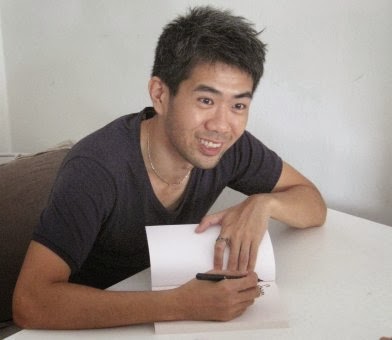A bookseller there had this to say: "The books on offer here are very different from in the UK. French books are precious, intellectual - elitist. And too often bookshops are intimidating. Ordinary people are scared of the whole book culture."
Ooo. In short, les livres sont trop français. Too ... 'French'.
Buuut...
...French writers insist that the sins they are accused of - abstraction, lack of plot and character, a preference for text over story, contempt for the non-literary reader - are a cliche perpetuated by Anglo-Saxons with little knowledge of how things have changed in recent years.
"Personally I am fed up with all the stereotypes," says [French writer Marie] Darieussecq. "We're not intellectual. We're not obsessed with words. We write detective stories. We write suspense. We write romance.
"And it's about time you started noticing."
Pour quoi tant pétulant, madame?
One more stumbling block to Amazon's drone-delivery army: angry raptors. And this guy, who has reportedly pledged to shoot down any drone he sees.
Meanwhile, an "unusual" number of snowy owls are spotted in the US. Hmm hmmm hmmmm.
What else is happening:
- A different kind of artefact: The "artful accidents" of Google Books includes scans of employees' hands as they flip the pages.
- Reading can be hazardous: the 'confessions' of a judge for this year's National Book Awards.
- Readers of The Guardian recommend these self-published works. Are these truly the diamonds among the duds?
- Linguists find ways to, like, distinguish statements from questions in Valley Girl-talk, for sure. Like, totally.
- Mixed results for bookselling in Mexico after book prices are fixed. "...the law that was passed had no provisions for enforcing it, and so the situation has become ever more chaotic. Booksellers who follow the law are undercut by others who don't, and the latter aren't penalized — and this is an issue that's particularly bad for smaller or farflung bookstores, which the law was meant to support in the first place."
- Lingerie in literature: "underwiring" for stories? Probably not for men.
- Yeah, why do we value gold? "Chemically, it is uninteresting - it barely reacts with any other element," the standfirst goes. But gold is valued partly because of that attribute.
- Dunia nak kiamat? Sebab orang puteh tulis surat cinta kepada durian. Sorry, not going to translate.
- The literary feuds of 2013 because why not?
Categories:
Book Marks






